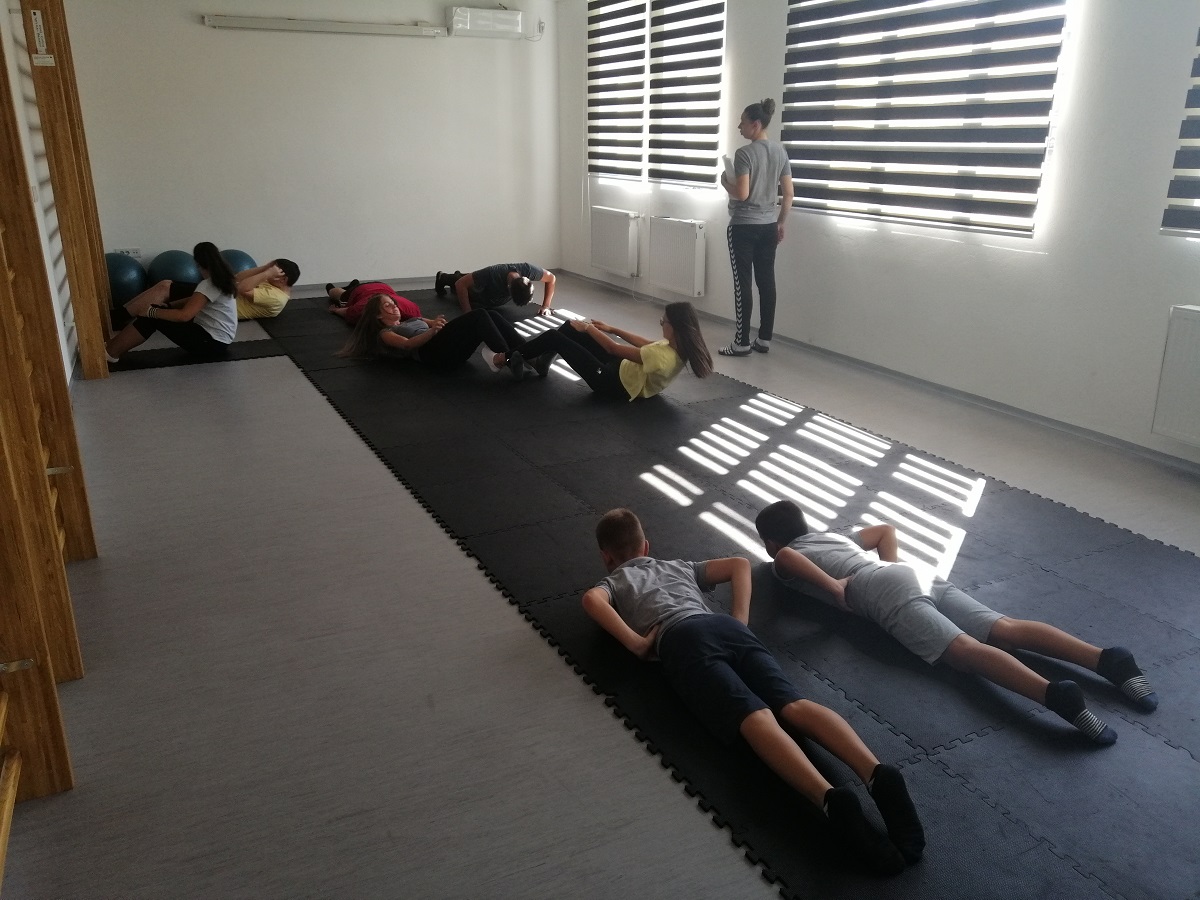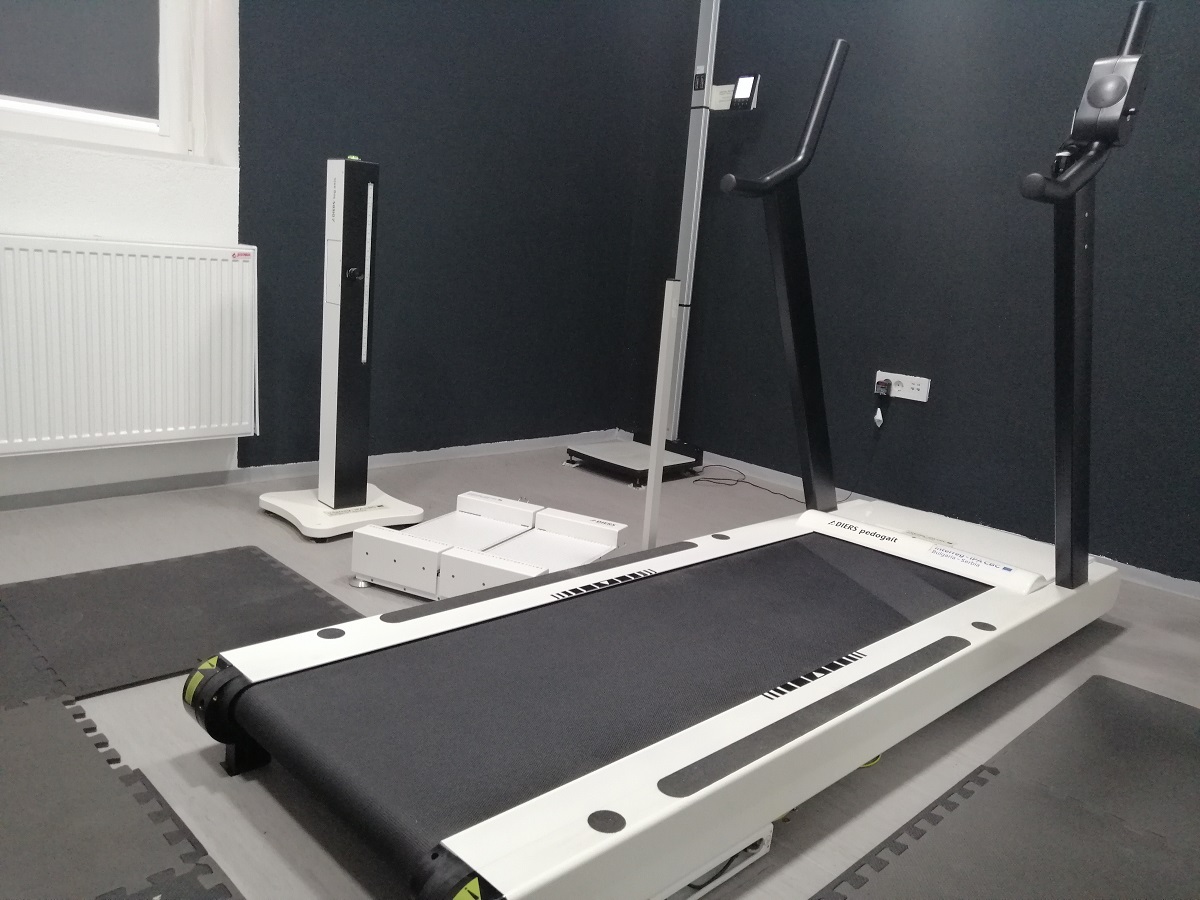 EU aid for the establishment of the Centre for early detection of spinal deformities in children
EU aid for the establishment of the Centre for early detection of spinal deformities in children
It is highly important for the growth and development of children to have a healthy spine, as well as to make an early diagnosis and solve the problem of the posture. With proper prevention, physical exercise and work discipline, good results will undoubtedly be achieved. Kristina and Mijat are among numerous students from Knjaževac who had to start exercising after having their spines checked with state of the art devices in their hometown. They are now exercising regularly and are aware of how much it can help them in their progress.
“If there is a deformity, it is always better to start dealing with it as soon as possible, so that we don’t encounter bigger issues down the road,” said Kristina Marjanović, a primary school student.
With the support of the EU, the Centre for Early Detection of the Postular Status, i.e. the centre for diagnosing spine deformities in children, opened in Knjaževac in 2018. State of the art diagnostic devices have enabled a detailed and precise analysis of the spine, as well as of disorders in the development of other body parts. The equipment available at the centre is one of a kind in Serbia, and it is the first such centre in the Balkans. It enables the diagnosis of even the smallest deformity in its early phase, facilitating treatment and the process of strengthening the body.
Since the setting up of the Centre – which operates as part of the Sports Association of Knjaževac – around 4,000 children and young athletes have been tested. After the testing, based on detailed results, there are specific, tailored exercises led by physical therapists and instructors who work as professors at the Faculty of Sport and Physical Education. It poses a significant professional challenge for the professors, as they have the opportunity to work with children and help their proper development.
A number of children exercise daily at the Centre’s gym in two shifts and have found this to be an important activity and an opportunity for proper development and treatment of potential spinal deformities early in their lives. A publication titled “The methodology of corrective exercise” (.pdf) has been published as well, and is available for free to everyone.
“I know many adults who experience problems with their spine and are unable to engage in many activities. I think it’s very important that I started exercising on time and that I can straighten my spine that way,” Mijat Bogojević, a student from Knjaževac, said.
 The devices available at the Centre are brand new and offer an accurate picture of the overall spinal status – a diagnosis impossible to make at many health institutions. It is of particular importance for students in Knjaževac not having to travel to other towns in order to do the testing.
The devices available at the Centre are brand new and offer an accurate picture of the overall spinal status – a diagnosis impossible to make at many health institutions. It is of particular importance for students in Knjaževac not having to travel to other towns in order to do the testing.
Physician Mikica Vidojević, the President of the Sports Association of Knjaževac, emphasises that between 80 and 90 percent of children suffer from at least an early, minor spinal disorder, which highlights the extreme importance of prevention and adequate response. Children are exposed to unhealthy lifestyles to a great extent, they are insufficiently physically active, all of which increases the possibility of deformities and irregular development.
“Prevention is the foundation of medicine and it is more economically viable because a stitch in time saves nine. We are trying to introduce young children into the system of exercising and posture correction and to ensure we have a healthier population,” Vidojević stated.
The Centre for Early Detection of the Postular Status in Knjaževac has, since its establishment, systematically been working on educating the community about deformity prevention and check-ups of children. Initially, they have organised meetings with school principals, then with the teaching staff, and, finally, with parents so that as many people as possible become aware of the importance of running medical tests for deformities in children.
The devices, as well as the entire system – from diagnosis to exercise – enables even the smallest deformities to be identified and treated properly in the early stages.
The capacity of The Centre for Early Detection of the Postular Status in Knjaževac already exceeds the needs of the Municipality of Knjaževac, so the children from other parts of Serbia, as well as from the region, are coming here more and more often. In the coming period, an online app should be developed, which will enable a child to be tested, “linked” to a device with a code and to given online instructions on adequate exercises.
The establishment of the Diagnostic Center in Knjaževac has been financed with EU funds, as part of a cross-border cooperation project between Serbia and Bulgaria. Check-ups for children are completely free.
The European Union has donated more than EUR 3.6 billion since 2000 and has been the biggest donor and the most significant partner when it comes to the modernisation of society and institutions. The EU funds have been used to reform several areas: infrastructure, education, agriculture, culture, economy, industry, small and medium enterprises, energetics, state administration, social inclusion, flood protection, environment. The European Union has been Serbia’s biggest and most significant trade partner. Two-thirds of foreign investments come from the EU and two-thirds of trade is done with the EU member states as well. In addition to donations, the European banks have invested more than EUR 8 billion. The EU realises all donations and investments in Serbia together with the institutions of the Republic of Serbia.
Source: euinfo.rs
 Government of the Republic of Serbia
Government of the Republic of Serbia















 pdf [271 KB]
pdf [271 KB]
Leave a Comment